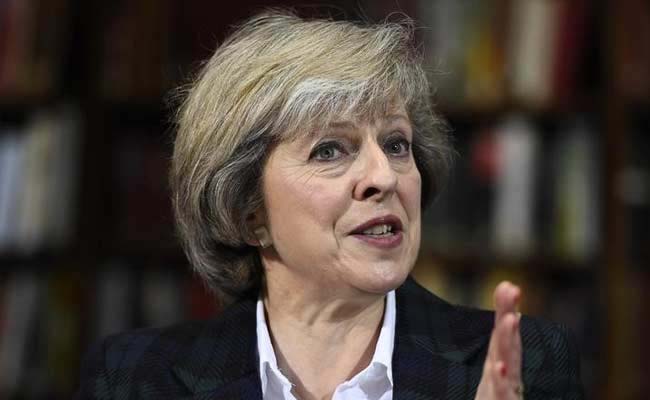
AFP, London :Prime Minister Theresa May will face her first parliamentary test on Monday when lawmakers vote on replacing the ageing submarines that carry Britain’s nuclear weapons.Five days after taking office in the wake of the referendum vote to leave the European Union, May will use her first speech to the House of Commons as premier to defend the nuclear deterrent as the “ultimate insurance”.MPs are almost certain to approve the construction of four new submarines to carry the existing Trident missile system and their nuclear warheads, at a cost of £41 billion (49 billion euros, $54 billion).Opposition Labour leader Jeremy Corbyn, a veteran socialist and anti-war campaigner, will lead the vote against the motion but many of his MPs will back the Conservative government.”It is impossible to say for certain that no extreme threats will emerge in the next 30 or 40 years to threaten our security and way of life,” May said ahead of the debate, which starts at 1430 GMT followed by a vote at 2100 GMT.”And it would be a gross irresponsibility to lose the ability to meet such threats by discarding the ultimate insurance against those risks in the future.”Britain is one of only three nuclear-armed NATO nations, along with the United States and France, and has had a continuous at-sea deterrent since 1969 — meaning one of its submarines is always deployed somewhere in the world.Each submarine contains a sealed letter from the prime minister containing instructions on how to proceed if a nuclear strike on Britain has incapacitated the government.Nuke threat ‘increased’Critics argue that Britain’s possession of nuclear weapons is immoral, expensive and outdated, a product of the Cold War that has no use in the fight against modern threats such as the Islamic State group.The government says it remains committed to reducing its nuclear arsenal in line with its international obligations, but May will argue that the nuclear threat “has not gone away — if anything, it has increased”.Corbyn has said that he would not deploy Trident if he were prime minister, but has allowed his MPs a free vote, and many are expected to back the deterrent.The vote risks further deepening splits between the socialist and moderates in the Labour party which crystallised in the turmoil sparked by the Brexit vote on June 23 and sparked a leadership challenge against him..

